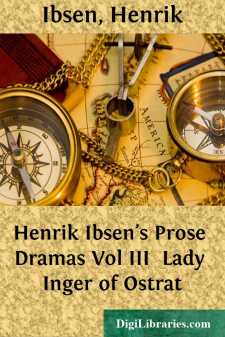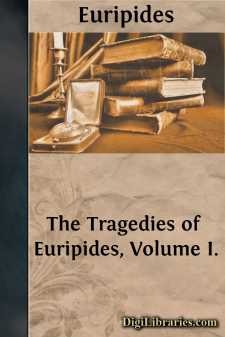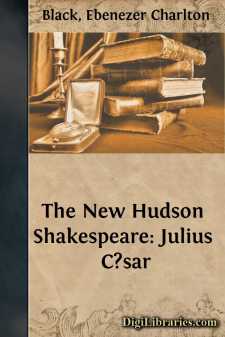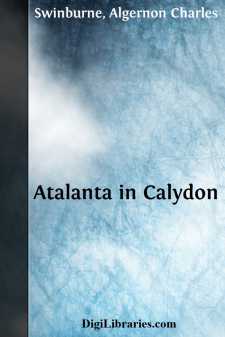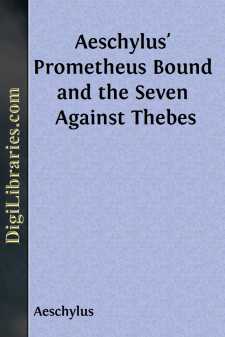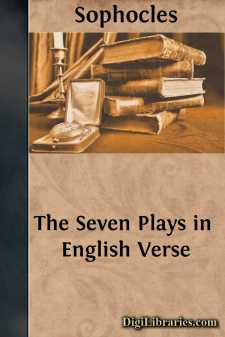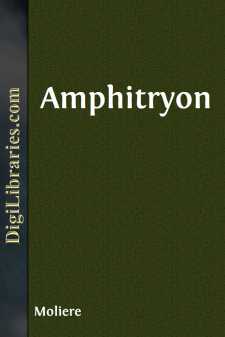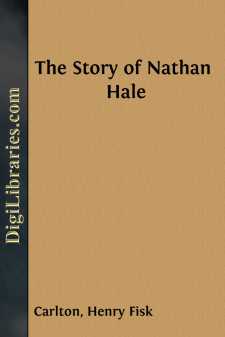Drama
- American 43
- Ancient, Classical & Medieval
- Asian 7
- Caribbean & Latin American 2
- Continental European 50
- English, Irish, Scottish, Welsh 91
- General 105
- Middle Eastern 1
- Religious & Liturgical 1
- Shakespeare 1
Ancient, Classical & Medieval Books
Sort by:
by:
Henrik Ibsen
ACT FIRST. (A room at Ostrat. Through an open door in the back, the Banquet Hall is seen in faint moonlight, which shines fitfully through a deep bow-window in the opposite wall. To the right, an entrance- door; further forward, a curtained window. On the left, a door leading to the inner rooms; further forward a large, open fireplace, which casts a glow over the room. It is a stormy evening.) (BIORN...
more...
by:
Euripides
INTRODUCTION. Euripides, son of Mnesarchus, was born in the island of Salamis, on the day of the celebrated victory (B.C. 480). His mother, Clito, had been sent thither in company with the other Athenian women, when Attica was given up, and the ships became at once the refuge of the male population, and the national defense. Mr. Donaldson well remarks, that the patronymic form of his name, derived from...
more...
INTRODUCTION Note. In citations from Shakespeare's plays and nondramatic poems the numbering has reference to the Globe edition, except in the case of this play, where the reference is to this edition. I. SOURCES No event in the history of the world has made a more profound impression upon the popular imagination than the assassination of Julius Cæsar. Apart from its overwhelming interest as a...
more...
THE ARGUMENT. Althaea, daughter of Thestius and Eurythemis, queen of Calydon, being with child of Meleager her first-born son, dreamed that she brought forth a brand burning; and upon his birth came the three Fates and prophesied of him three things, namely these; that he should have great strength of his hands, and good fortune in this life, and that he should live no longer when the brand then in the...
more...
by:
Aeschylus
INTRODUCTION. Æschylus, the first of the great Grecian writers of tragedy, was born at Eleusis, in 525 B.C. He was the son of Euphorion, who was probably a wealthy owner of rich vineyards. The poet's early employment was to watch the grapes and protect them from the ravages of men and other animals, and it is said that this occupation led to the development of his dramatic genius. It is more easy...
more...
by:
Sophocles
PREFACE In 1869, having read the Antigone with a pupil who at the time had a passion for the stage, I was led to attempt a metrical version of the Antigone, and, by and by, of the Electra and Trachiniae. I had the satisfaction of seeing this last very beautifully produced by an amateur company in Scotland in 1877; when Mrs. Fleeming Jenkin may be said to have ‘created’ the part of Dêanira. Thus...
more...
by:
Moliere
PROLOGUE MERCURY, on a cloud; NIGHT, in a chariot drawn by two horses MERC. Wait! Gentle Night; deign to stay awhile: Some help is needed from you. I have two words to say to you from Jupiter. NIGHT. Ah! Ah! It is you, Seigneur Mercury! Who would have thought of you here, in that position? MERC. Well, feeling tired, and not being able to fulfil the different duties Jupiter ordered me, I quietly sat...
more...
CAST CAPTAIN NATHAN HALECAPTAIN WILLIAM HULLGENERAL WASHINGTONBOS'NLIEUTENANT PONDSIMON CARTERLIEUTENANT DREW [BRITISH]MRS. CHICHESTERCAPTAIN MONTRESSORPROVOST MARSHAL CUNNINGHAM We present here the story of the famous Revolutionary hero and martyr, Nathan Hale. For the first scene of our sketch, let us go to General Washington's headquarters in New York City. It is early September of the...
more...
by:
William Dunlap
WILLIAM DUNLAP: (1766-1839) The life of William Dunlap is full of colour and variety. Upon his shoulders very largely rests the responsibility for whatever knowledge we have of the atmosphere of the early theatre in America, and of the personalities of the players. For, as a boy, his father being a Loyalist, there is no doubt that young William used to frequent the play-house of the Red Coats, and we...
more...
by:
J. Donkersley
PREFACE. Racine, the author of Athalie (Athaliah), flourished in the latter half of the 17th century. At his appearance, Corneille, the great French Dramatist, was in the full splendour of his fame, whose rival he was afterwards recognised to be. Athalie is a Tragedy in rhyme, consisting of six Iambic feet, similar to the Alexandrine verse found occasionally in our English poets at the termination of a...
more...


